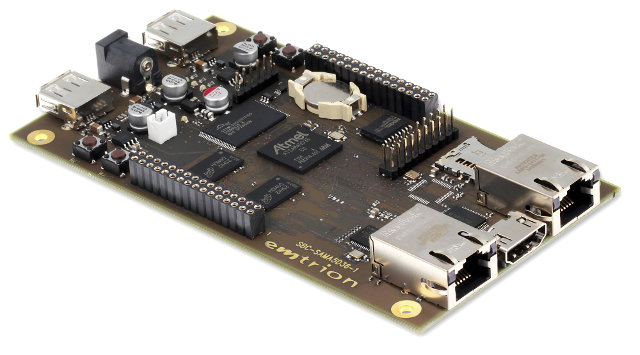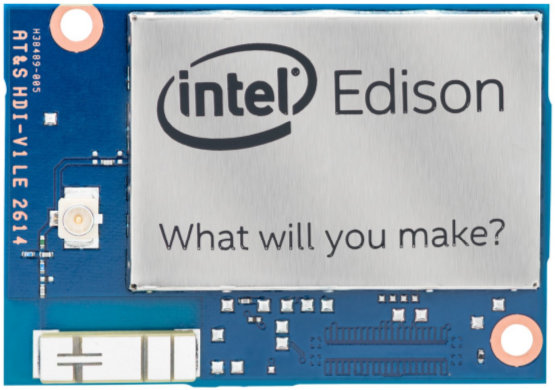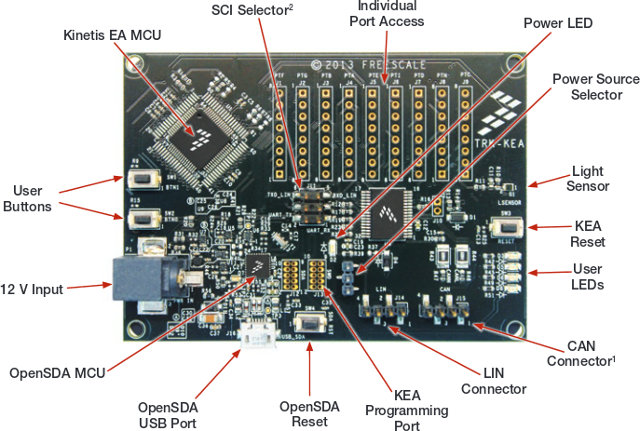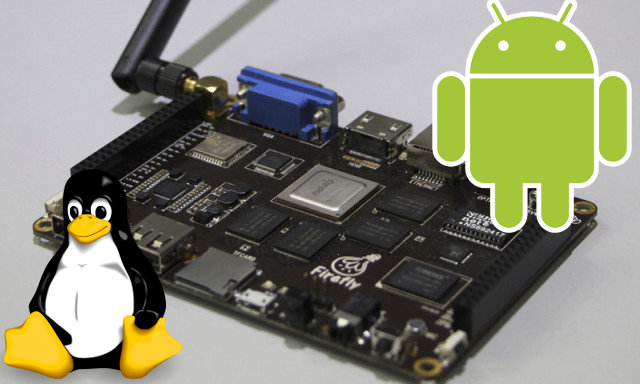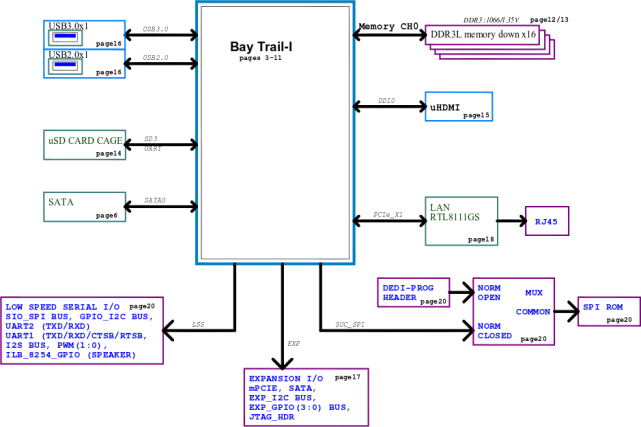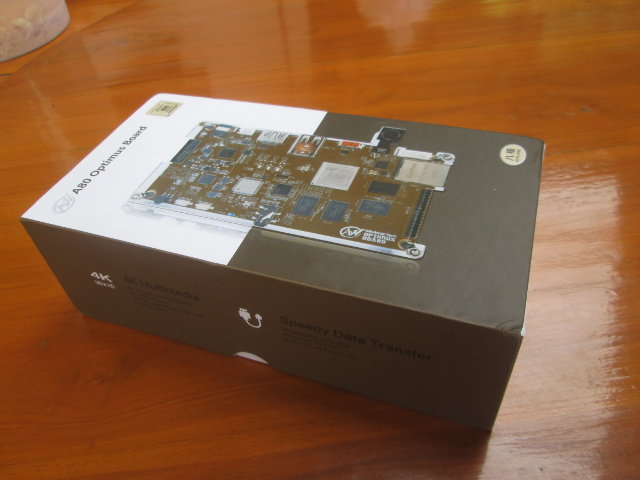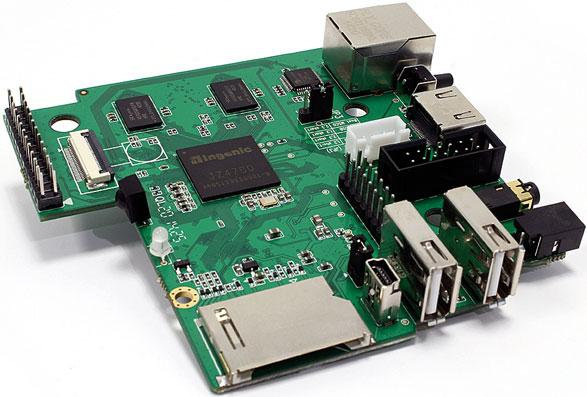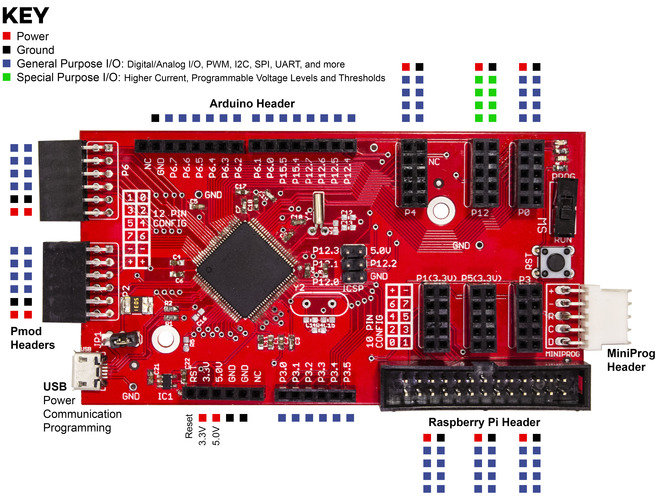A few months ago, I reviewed Atmel Xplained SAMA5D3 development board powered by SAMA5D36 Cortex A5 processor. The kit is supported by the Yocto Project, so I could build and run Poky distribution with a recent Linux kernel (it support mainline), it features Arduino compatible headers, and I found the board to be a nice platform for headless applications, or applications that require an LCD display. However, if you wanted to connect an HDMI display you’d be out of luck, unless you design your own LCD to HDMI add-on board. Emtrion SBC-SAMA5D36 could be an interesting alternative, as it features very similar specifications, but adds an HDMI output port. Emtrion SBC-SAMA5D36 specifications: MPU – Atmel SAMA5D36 single core Cortex-A5 @ 536 MHz System Memory – 256 MB RAM Storage – 512 MB NAND Flash, up to 16 MB NOR Flash, and micro SD Card socket Connectivity – 100Base-TX Ethernet, 10/100/1000Base-TX […]
$50 Intel Edison Board for Wearables Features an SoC with a Dual Core Atom Processor, and a Quark MCU
Intel announced the Edison board for wearables applications last January at CES 2014. When it first came out, it looked like an SD card, but the board look has now drastically changed. Nevertheless, the important point is that Intel Edison is now available, together with various development kits, and runs Linux (Yocto built), as well as an RTOS. With the official release, we’ve also got the full specifications: SoC – Dual-core, dual-threaded Intel Atom (Silvermont) processor (22nm) processor @ 500 MHz and a 32-bit Intel Quark micro-controller @ 100 MHz. Includes 1GB LPDDR3 PoP memory System Memory – 1 GB LPDDR3 (PoP memory) – 2 channel 32bits @ 800MT/sec Storage – 4 GB eMMC (v4.51 spec) + micro SD card connector Connectivity – Dual band 802.11 a/b/g/n Wi-Fi (Broadcom 43340) with either an on-board antenna or external antenna, and Bluetooth 4.0 USB – 1x micro USB connector I/Os: 2x UART […]
Freescale To Give Away StarterTRAK Development Boards for Automotive Applications
Freescale StarterTRAK development boards are based on the company’s Kinetis EA Cortex M0+ MUCs or Qorivva 32-bit MCU targeting automotive applications with support a wide temperature range (–40° to +125°C) and interfaces such as LIN (Local Interconnect Network) and CAN. These development boards can be used for body and security, powertrain, and safety & chassis applications. Freescale has decided to giveaway 60 StarterTRACK development board to random winners, so if you are knowledgeable in this field it could be an opportunity to try the platform. There will be 5 different kits given away, all based on Kinetis MCU: TRK‐KEA8, TRK‐KEA64, TRK‐KEA128, KEA128LEDLIGHTRD and KEA128BLDCRD. Let’s have a closer look at TRK-KEA128 development board. Key features and specifications of TRK-KEA128 board: MCU – Kinetis KEA128 ARM Cortex M0+ MCU @ 48MHz with 16KB RAM and 128KB flash in a 80 LQFP package On-board openSDA debugging and programming circuit using the PK20DX128 MCU […]
Rockchip RK3288 Android 4.4.2 SDK and Schematics Released for Firefly Board
Firefly-RK3288 development board was first announced in July. I still don’t have news about availability nor pricing, but the T-Firefly website launched yesterday. They seem do have a nice Wiki, but unfortunately everything is currently in Chinese, except when you go to the download page. You’ll find firmware upgrade_tool for Linux and Windows, the USB drivers for rooting and firmware update, firmware images (Android 4.4.2, Ubuntu 14.04, and dual boot), the board schematics (PDF), and Android KitKat 4.4.2 SDK with U-Boot, Linux, and Android source code, some documentation, XBMC apk (no source) with H.265 hardware decode support for MP4, MOV and MKV container formats. The SDK is available on Bitbucket. I planned to test it, but unfortunately my network connection is very slow (and unstable) to this server, and I failed to retrieve it with git clone. The company also posted the build instructions in Chinese in their website, but […]
MinnowBoard MAX Schematics, Board layout, Gerber, and BoM Released
MinnowBoard MAX (aka MinnowBoard2) is an embedded board powered by Intel Atom Bay-Trail-I E3815 (single core) or E3825 (dual core) processor, with 1 to 2GB RAM, SATA II, USB 3.0, Gigabit Ethernet ports, and more. The board currently officially supports four operating systems: Debian GNU/Linux, Linux built with the Yocto Project, Android 4.4, and Windows 8.1. One of its main selling point is the price as the single core version sells for $99, and the dual core version for $129, rivalling in price with equivalent ARM based development boards. It’s also an open source hardware board, and as it’s now about to ship, CircuitCo released all hardware files under a Creative Commons CC-BY-SA license, allowing anybody with the right skills to create a clone, or their own hardware. Here are the files that have been released: Schematic (PDF) Schematic (Orcad DSN) Board Layout (Allegro BRD) Gerbers Bill of Materials Schematics […]
A80 OptimusBoard Development Board Pictures and Benchmarks
A80 OptimusBoard is a development board featuring the latest AllWinner A80 SoC with 8 ARM Cortex A15/A7 cores in big.LITTLE configuration, and a PowerVR GC6230 GPU. Availability was announced about 2 weeks ago for $345, but partially thanks to reader comments on CNX Software, Merrii Technology decided to lower the price to $169 (and $50+ for shipping) to stay competitive against similar boards such as Hardkernel ODROID-XU3. I’ve now received a sample for evaluation. I won’t go again through the specs, but today I’ll take a few pictures of the board, and provide benchmark results to compare them to the ones I got with Rockchip RK3288. Normally, I would also play with the SDK provided with the board, but sadly (and amazingly), there’s currently no such SDK for A80 OptimusBoard, except a leaked Linux SDK which failed to build with recent tools and operating systems. A80 OptimusBoard Pictures I’ve received […]
MIPS Creator CI20 Development Board Formally Announced, Free to Selected Developers
Earlier this month, I discovered MIPS Creator CI20 development board based on Ingenic JZ4780 dual core MIPS processor thanks to one of my reader. Imagination Technologies has now launched the board, which will run Debian 7 first, soon support Android 4.4 and others Linux distributions, and the company places their MIPS board as a competitor to the popular ARM based boards such as the Raspberry Pi and BeagleBone Black. This is the first board part of Prpl initiative for open source Linux and Android software for the MIPS architecture. As a reminder, I’ll list the hardware specifications again: SoC – Ingenic JZ4780 dual core MIPS32 processor @ 1.2 GHz with Imagination PowerVR SGX540 GPU. 32kI + 32kD per core, 512K shared L2. System Memory – 1GB DDR3 Storage – 8GB NOR flash, 1x SD card slot, 1x SD card slot via expansion Video Output – HDMI up to 1080p Audio […]
RPiSoC Development Board Based on Cypress PSoC 5LP Features Pmod, Raspberry Pi, and Arduino Headers (Crowdfunding)
Embedit Electronics, a startup founded by two recent graduates of Rensselaer Polytechnic Institute, USA, has designed a board powered by Cypress Semiconductor PSoC 5LP ARM Cortex M3 system-on-chip with programmable digital and analog I/Os. The board can interface with all Raspberry Pi models, Digilent Pmod peripheral modules, and supports Arduino shields. RPiSoC specifications: SoC – Cypress PSoC 5 with ARM Cortex M3 core at 67MHz , 256 KB Flash Program Memory, with user configurable write protection, and 64KB SRAM Expansions and I/Os: Arduino shield and ICSP compatible headers. 2x Digilent Pmod compatible headers 58 reconfigurable GPIO pins 26-pin ribbon cable connector for use with the Raspberry Pi 8 SIO (Special Input/Output) pins with higher current sink 5-pin MiniProg3 header for programming via MiniProg3 hardware. USB – 1x micro USB port for power, communication and programming. Misc – Reset push button, User accessible LED, Programming switch Power – 5V via micro […]


